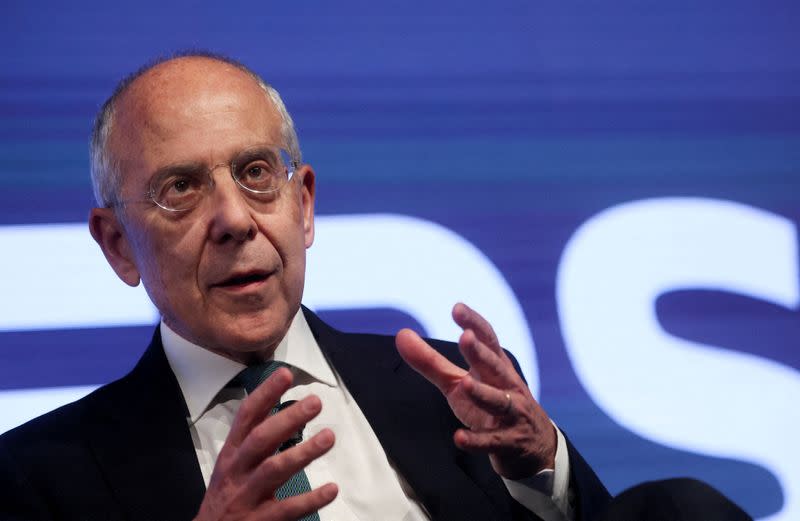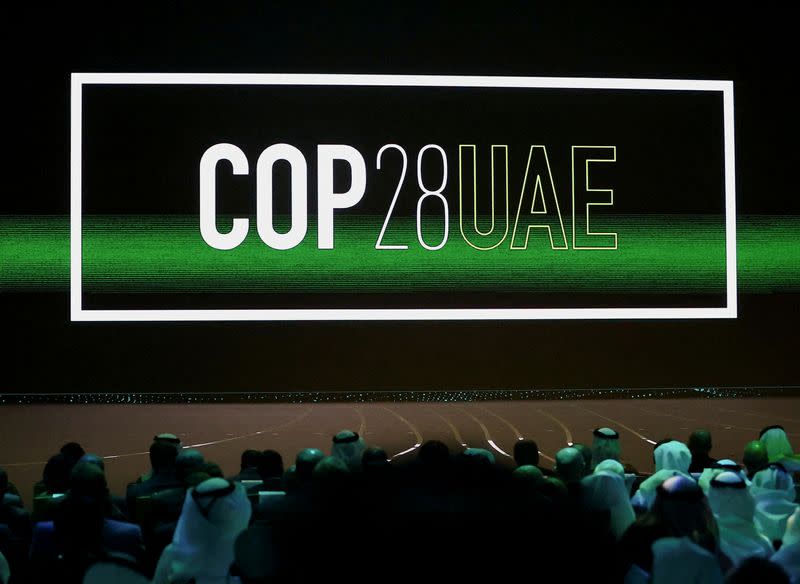Group judging corporate climate claims overhauls itself after criticism
By Tommy Wilkes and Ross Kerber
LONDON/BOSTON (Reuters) -The group that has become the go-to judge of corporate climate targets globally is separating itself into two and overhauling its governance in a bid to address conflict of interest concerns and speed up the time it takes to assess company plans.
Businesses, often under pressure from shareholders, have been rushing to commit to reducing their carbon emissions, typically to zero on a net basis by 2050, with interim targets for cutting emissions from now until 2030.
For these plans to have credibility amid accusations that many firms are greenwashing, scientists, investors and climate groups say companies need external validation of their emission reduction plans.
The Science Based Targets initiative (SBTi) has emerged as a key group setting standards for targets and deciding whether companies' plans are good enough, raising concerns about its ability to make assessments as independently and robustly as possible and whether it can cope with a backlog of approvals.
Under plans unveiled on Wednesday, SBTi has incorporated a new company in the UK to "safeguard impartiality." The fee-charging part validating corporate targets will be managed by a subsidiary while standard setting will sit within the new company.
The SBTi has also appointed a chair of its board of trustees, naming Francesco Starace, a partner at EQT Infrastructure and ex-CEO of Italian energy giant ENEL, and two independent trustees.
"The SBTi plays an important role in encouraging ambitious corporate climate action, which relies on credible target validation and robust standard setting," Starace said.
The group said it plans to grow its validation capacity amid soaring demand - last year saw an 87% jump in the number of firms setting climate targets.
SBTi's standard-setting processes will be redrawn, and the group will publish standard-setting procedures following the appointment of an independent body to approve SBTi standards.
Established by several climate groups including the World Wide Fund for Nature and the United Nations Global Compact, the SBTi charges companies a fee for validating their targets. Its funders include the Bezos Earth Fund, IKEA Foundation and Bloomberg Philanthropies.
The group has also faced criticism about the transparency of its methods.
Bill Baue, a vocal critic and sustainability activist who was a technical adviser to the initiative until 2020, told Reuters that the separation would not tackle the "deeper problem" of SBTi effectively monopolising the validation process.
He also said that it was a mistake to only appoint trustees who represent SBTi's client base while neglecting those living in areas hit hard by climate change.
But James Parker, head of sustainability at carbon accounting software platform Minimum, said the appointment of the new trustees -- including Ivan Duque, a former president of Colombia -- matches a current demand for stronger corporate targets.
Separating the validation and standard-setting parts of the organization should also help the organization's impartiality, Parker said.
(Reporting by Tommy Reggiori Wilkes in London and Ross Kerber in Boston; Editing by Alex Richardson, Elaine Hardcastle and Mark Porter)

 Yahoo Finance
Yahoo Finance 

